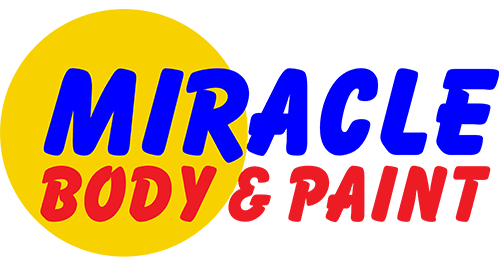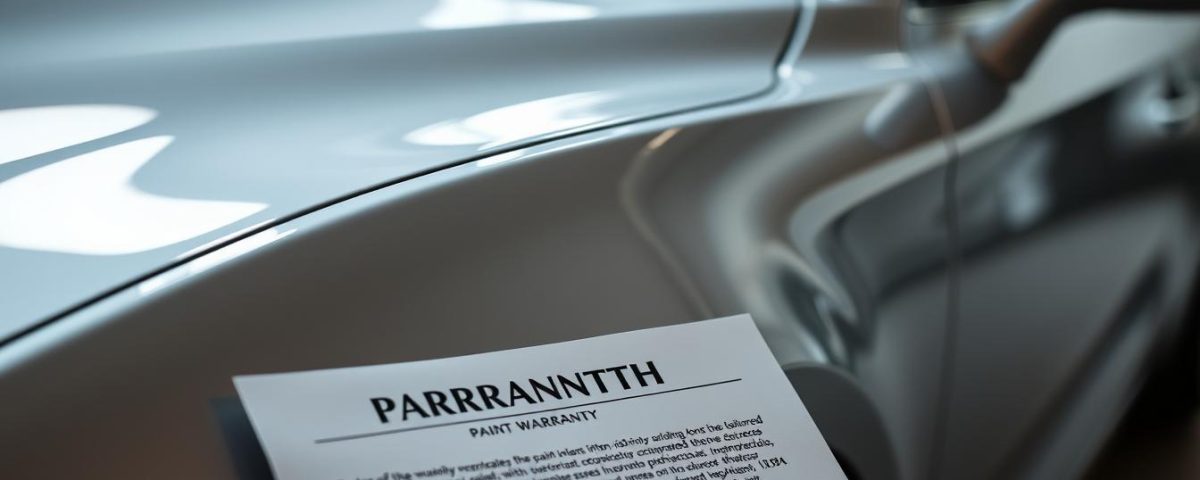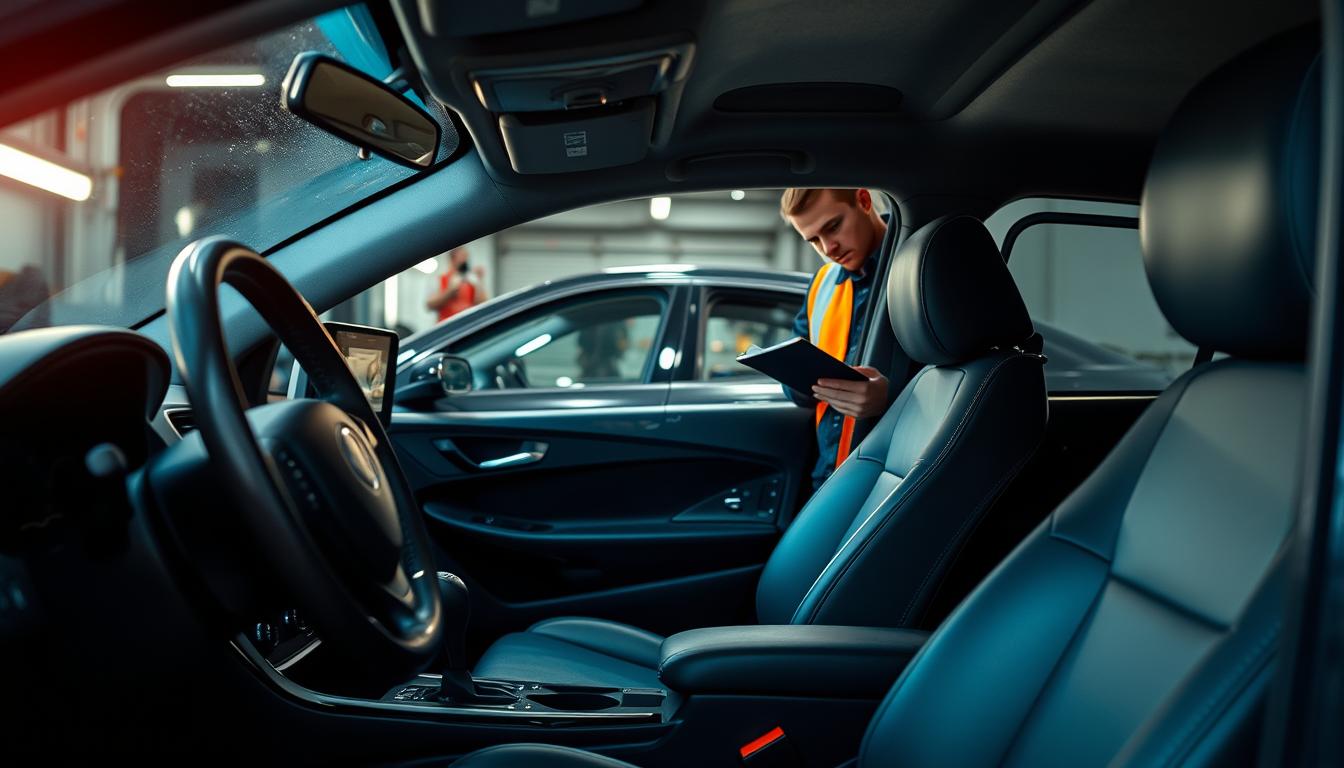
Post-Accident Checklist: What to Inspect on Your Vehicle
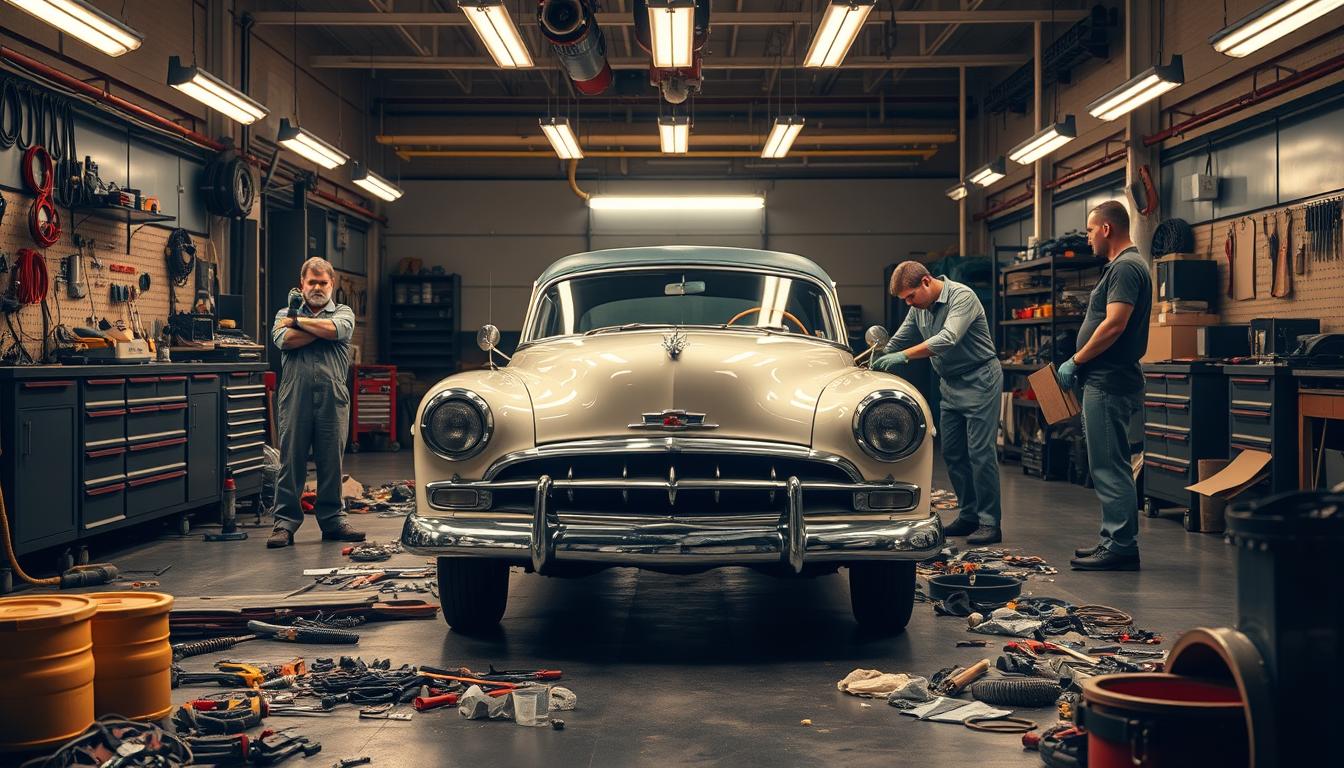
7 Tips to Keep Your Car Looking Great After Body Repairs
At Miracle Body and Paint Collision Center, we understand the importance of maintaining your car’s appearance and value. A car paint warranty is a guarantee provided by the painting service or manufacturer that covers certain types of damage or defects in the paint job.
Understanding what’s covered under a paint warranty is crucial for vehicle owners who want to protect their investment. We will explore the comprehensive details of auto paint warranties and how they safeguard your vehicle’s finish from defects and damage.
Key Takeaways
- Understand the types of damage or defects covered under a car paint warranty.
- Learn about the different types of paint warranties available, from manufacturer warranties to service provider guarantees.
- Discover what’s typically included in paint warranty coverage and common exclusions.
- Get expert guidance on navigating paint warranty terms from Miracle Body and Paint Collision Center.
- Find out how to maintain your warranty protection and successfully file claims.
Understanding Auto Paint Warranties
A car paint warranty serves as a guarantee that the paint job on your vehicle meets certain standards of quality and durability. This type of warranty is provided either by the car’s manufacturer or the auto body shop that performed the paint work.
Definition and Purpose of Paint Warranties
A paint warranty is designed to protect vehicle owners from manufacturing defects and workmanship issues that could affect the car’s finish. The purpose is to assure customers that the paint job will last for a specified period under normal conditions.
Why Paint Warranties Matter for Vehicle Owners
Paint warranties matter because they provide financial protection against potentially expensive repainting costs. They also enhance your vehicle’s resale value by documenting professional paint work.
Different warranty providers offer varying levels of coverage, from basic defect protection to comprehensive plans covering environmental damage.
Types of Paint Warranty Auto Repair Coverage
When it comes to protecting your car’s paint, understanding the different types of paint warranty auto repair coverage is crucial. Various warranties offer distinct benefits, and choosing the right one depends on several factors, including the age of your vehicle and the type of paint work done.
Manufacturer’s Original Paint Warranties
Manufacturer’s original paint warranties come standard with new vehicles, typically covering defects in materials and workmanship for 3-5 years. These warranties protect against issues like paint peeling, abnormal fading, or corrosion under normal use conditions.
Service Provider Warranties
Service provider warranties are offered by auto body shops and paint specialists for aftermarket paint work. The coverage terms vary significantly between providers, with quality-focused shops often providing more comprehensive coverage.
Extended Paint Protection Plans
Extended paint protection plans serve as supplementary coverage that can be purchased to extend the duration or expand the scope of your paint warranty. These plans may cover additional perils not included in standard warranties, such as environmental damage or minor scratches.
Understanding these different types of paint warranty auto repair coverage helps vehicle owners make informed decisions about their car’s paint protection. By choosing the right warranty, you can ensure your vehicle remains protected against various forms of damage.
What’s Typically Covered in Paint Warranties
Vehicle owners should be aware of the typical coverage provided by auto paint warranties. These warranties are designed to protect against various paint-related issues that may arise due to defects or workmanship problems.
Paint Defects and Workmanship Issues
Paint defects covered by warranties typically include adhesion failures where paint doesn’t properly bond to the vehicle’s surface. Workmanship issues like improper paint application or inadequate surface preparation are generally covered under service provider warranties, ensuring that the paint job is done correctly.
Peeling, Flaking, and Discoloration
Peeling and flaking paint is usually covered under warranties, especially when it occurs without external damage. Most warranties also cover discoloration issues like fading, yellowing, or chalking that exceed normal expectations for the vehicle’s age and exposure conditions. This means that if your car’s paint starts to deteriorate prematurely, you may be able to file a warranty claim.
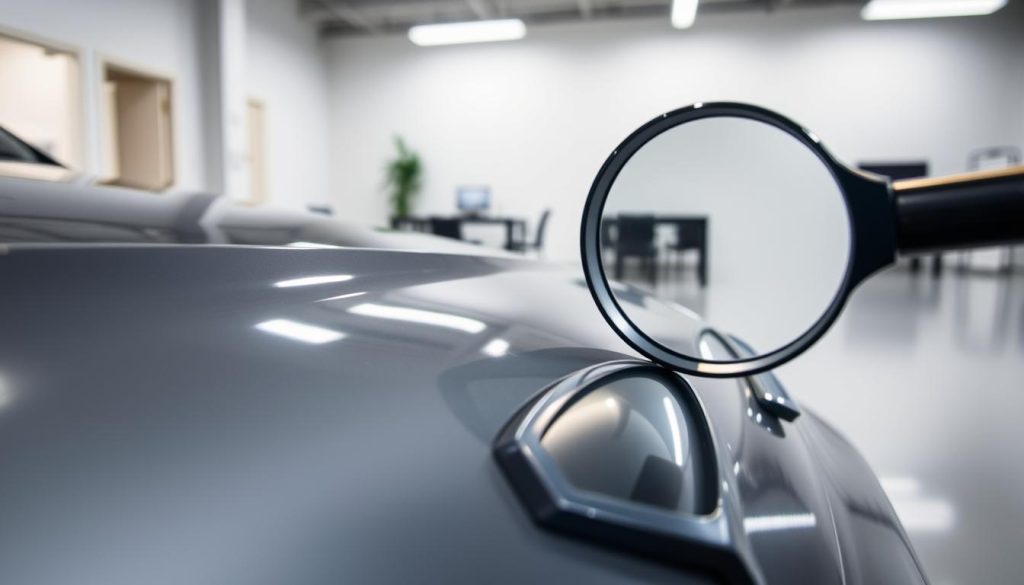
Rust and Corrosion Protection
Rust and corrosion protection is a critical component of comprehensive paint warranties. Some warranties cover oxidation that begins beneath the paint surface, distinguishing between surface rust and perforation corrosion. Understanding these distinctions is key to determining when a warranty claim is appropriate.
By knowing what’s typically covered in paint warranties, vehicle owners can better maintain their car’s finish and make informed decisions when filing a warranty claim. At Miracle Body and Paint Collision Center, we provide clear explanations of covered conditions in our warranty documentation, helping customers understand their protection.
Common Exclusions and Limitations
When considering an auto paint warranty, it’s essential to understand what’s not covered. While these warranties provide valuable protection against various paint defects, there are certain exclusions and limitations that vehicle owners should be aware of.
Environmental Damage
Damage caused by environmental factors such as bird droppings, tree sap, or road salt is often excluded from paint warranty coverage. These natural substances can damage paint finishes, but most warranties consider them unavoidable hazards rather than defects in materials or workmanship.
Accidents and Physical Damage
Accident-related damage, including scratches, dents, and collision repairs, typically falls outside standard paint warranty coverage. Physical damage from road debris, gravel, or parking lot incidents is also generally excluded.
Normal Wear and Tear
All paint finishes deteriorate over time due to exposure to elements and regular use. Warranties usually define normal wear parameters based on vehicle age, mileage, and geographic location to determine what constitutes premature failure versus expected aging.
Duration of Auto Paint Warranties
Understanding the duration of your auto paint warranty is crucial for maintaining your vehicle’s finish. Auto paint warranties can vary significantly in their duration, depending on the type of warranty and the provider.
Standard Warranty Periods
Standard manufacturer paint warranties typically last between 3 to 5 years from the date of vehicle purchase. Some premium brands may offer longer warranty periods. Service provider warranty periods can vary widely, from one year to a lifetime warranty, depending on the quality of paint used and the shop’s policies.
- Manufacturer’s warranty usually covers 3-5 years or a specific mileage limit.
- Service warranty duration depends on the shop and paint quality.
Lifetime Warranties: What They Really Mean
“Lifetime” warranties require careful scrutiny. They generally mean the lifetime of your ownership, not the vehicle’s entire existence. Most lifetime warranties terminate when the vehicle changes ownership and may have specific maintenance requirements to remain valid.
How to Maintain Your Paint Warranty Protection
Maintaining your car’s paint warranty protection requires attention to detail and regular maintenance. To ensure that your warranty remains valid, you need to follow the recommended care and maintenance guidelines.
Proper Vehicle Care and Maintenance
Regular washing, waxing, and avoiding harsh chemicals are essential for maintaining your car’s paint. Regular washing using proper techniques and automotive-specific products helps prevent contaminant damage. Most warranties require periodic waxing or sealing to maintain the paint’s protective layer.
- Use gentle, car-specific cleaning products to avoid damaging the paint.
- Avoid automatic car washes with abrasive brushes to prevent microscopic scratches.
- Promptly address minor paint damage to prevent corrosion.
Documentation Requirements
Maintaining comprehensive records of all vehicle care is crucial for warranty protection. Keep records of all maintenance work, including receipts and service dates, to prove that you’ve properly cared for your car’s paint. Many warranties require periodic inspections by the warranty provider to document the paint’s condition.

By following these guidelines and maintaining accurate records, you can ensure that your paint warranty protection remains valid throughout the coverage period.
Filing a Paint Warranty Claim Successfully
Successfully filing a paint warranty claim requires meticulous record-keeping and swift action. When you notice paint issues or defects on your car, it’s essential to act quickly to ensure your claim is valid.
Required Documentation
To file a paint warranty claim, you’ll need to gather specific documents. These typically include the original warranty certificate, repair invoices, before and after photos of the affected areas, and maintenance records. Creating a detailed chronology of when the issue first appeared and how it has progressed strengthens your claim substantially.
- The original warranty certificate
- Repair invoices related to the paint issue
- Before and after photos of the damage
- Maintenance records to demonstrate proper car care
Step-by-Step Claim Process
The claim process typically begins with an inspection by the warranty provider to verify the issue and determine if it falls under covered conditions. Be prepared to demonstrate how you’ve maintained your vehicle according to warranty requirements through service records and receipts. If your claim is initially denied, most warranty providers have appeal processes that allow you to provide additional documentation or expert opinions.
- Notify the warranty provider as soon as you notice paint issues.
- Gather and submit the required documentation.
- Cooperate with the warranty provider during the inspection and assessment.
Choosing a Reliable Paint Warranty Provider
Choosing the right auto body shop for your paint warranty needs is a decision that shouldn’t be taken lightly. A reliable provider can offer peace of mind and protect your investment in your vehicle’s finish.
Evaluating Auto Body Shop Warranties
When evaluating auto body shop warranties, start by researching the shop’s reputation. Look for customer reviews that mention their experiences with warranty claims. A reputable shop will have a history of honoring their warranties and providing quality repairs.
- Check for verifiable references from long-term customers.
- Review online feedback for insights into the shop’s warranty claim process.
- Ensure the warranty document is clear and specific about what is covered.
Reading the Fine Print
Reading the fine print is crucial when reviewing a paint warranty. Pay attention to maintenance requirements and understand what is excluded from coverage. Compare warranty offerings between multiple shops to identify any significant differences.
- Verify if the warranty covers the entire painted surface or just the repair area.
- Ask about the process for handling disputed claims.
- Check if there’s an appeal process for denied warranty work.
By carefully evaluating auto body shop warranties and reading the fine print, you can make an informed decision and choose a reliable paint warranty provider.
Conclusion: Protecting Your Vehicle’s Finish with Miracle Body and Paint
At Miracle Body and Paint Collision Center, we understand the importance of a reliable paint warranty for your vehicle. Our comprehensive warranties cover manufacturing defects, workmanship issues, and premature paint failure, giving you peace of mind about your car’s appearance and protection.
We invite you to visit our auto body shop for all your collision repair needs, including expert paint services backed by our comprehensive warranty coverage. Contact us at our Northwest San Antonio location (210-680-1987) or Northeast San Antonio location (210-858-3630) to schedule a consultation.

